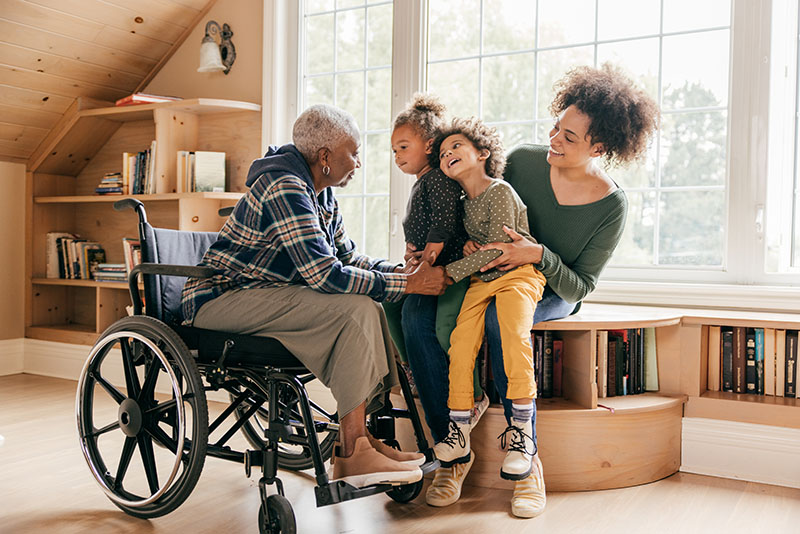What’s your first thought when you see an older person in a wheelchair? Do you see that person as less-than, someone in need of being fixed? Do you assume they require special treatment, as though a physical disability impacts intellect as well? How does your thinking shift to see someone standing upright, without the need for a wheelchair; would you think they were better-abled than the wheelchair-bound older adult?
These are challenging questions that require honest answers if we are to understand and respond accordingly to hidden disabilities and ableism.
What Is Ableism?
Ableism is described as “the discrimination of and social prejudice against people with disabilities based on the belief that typical abilities are superior.” It leads to harmful misconceptions and stereotypes.
The Two Sides to the Disability Coin
Individuals with visible disabilities encounter ableism in many ways: exclusion from venues that are inaccessible, being spoken down to or asked intrusive questions, needing to wait to use an accessible restroom stall while in use by somebody who could be using a standard stall, etc. On the other hand, there are lots of disabilities that aren't as easily visible (for example, hearing impairment, Alzheimer’s disease, or a heart condition), accounting for up to 80% of the disabled population. These people may have their concerns minimized and need to fight harder to receive any accommodations needed.
No matter whether a disability is hidden or apparent, there are steps we should all take to promote equality and inclusion:
- Treat everyone in the manner in which you would want to be treated. Say hello. Look them in the eye. Engage them in a conversation if they welcome the social interaction.
- Avoid trying to think for the individual or impose your help. Offer assistance in an open-ended manner if it seems needed, giving them the opportunity to let you know if they would like your help or not.
- Never speak over or around the individual, addressing a caregiver first. Speak directly to the individual, and if assistance with conversing is needed, the caregiver can then step in. Remember that the individual is an adult, and should always be spoken to as such.
At Amy’s Helping Hands, we are focused on treating every person we serve with respect and dignity. We can help someone you love with a complete array of personalized in-home care services which can include:
- Discreet personal care support, for safe baths/showers, restroom use, getting dressed, etc.
- Companionship to brighten each day through conversations, games, activities, arts and crafts, exercise, and more
- Assistance with walking and transfers
- Transportation and accompaniment
- Planning and preparing nourishing meals and providing assistance with eating when needed
- Specialized care for chronic health needs, such as Parkinson's and Alzheimer's disease
- Running errands such as picking up prescriptions and grocery shopping
- And much more
Call us at 519-915-4370 for additional details on our home care services in the Windsor, Ontario area, and to request a free in-home consultation.















